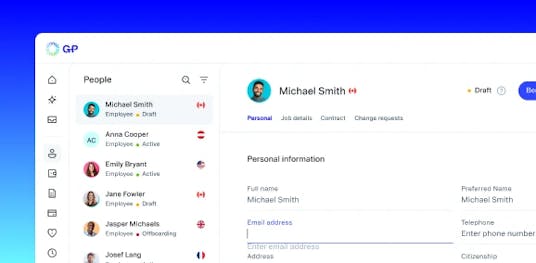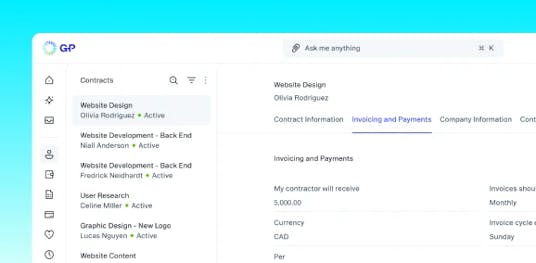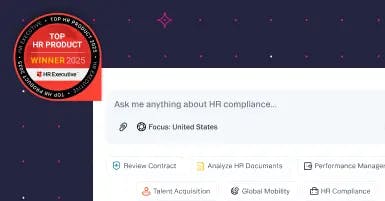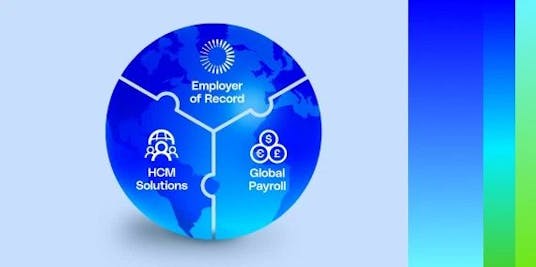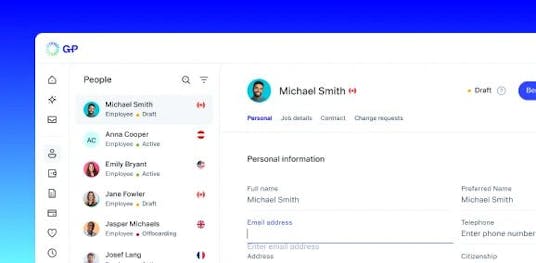Global expansion gives you access to new customers, diversified revenue streams, and broader talent pools. But success depends on timing and preparation. Let’s dive into the benefits of going global, risks and challenges to look out for, and best practices to keep things running smoothly.
Reasons companies expand globally
Companies expand globally to grow and improve their services. Here’s how each benefit contributes to your company:
1. Market access and revenue growth
One reason why companies go global is to reduce reliance on a single region. Spreading risk across multiple markets makes it easier to stay profitable during economic downturns. Global expansion gives you access to new markets and customers that may not exist at home, especially if you plan to expand through mergers and acquisitions. Diversifying your customer base also contributes to long-term growth.
2. Competitive advantage
Economic development is different in every country. Tapping into emerging markets and gaining the upper hand is another reason for international expansion. Establishing your presence ahead of competitors can improve brand recognition and position your company as a leader in the market.
New countries also let you access more suppliers, researchers, or other players involved in creating your products and services. This encourages innovative and cost-effective solutions for business operations.
3. Access to global talent pools
Talent acquisition is another reason why companies go international. You can find the best talent without geographic constraints. Plus, global hiring can be more cost-effective than hiring locally.
A global workforce also makes you more competitive. According to the 2025 Global Workforce Trends, 81% of employees want to work at a global company. This diversity ultimately leads to innovation and creativity, which are essential in achieving company goals.
An employer of record (EOR) can help you go global without the stress of entity setup. An EOR streamlines the entire employment lifecycle while reducing administrative costs, so you can hire anywhere in the world quickly and compliantly.
What questions should you ask before deciding to go global?
Companies expand internationally but often fall short due to a lack of thorough planning. You need a clear roadmap before you take the leap. Answering these questions can help:
What are the compliance and regulatory needs in your target countries?
Regulations affect your core operations and your business strategy. The more countries you target, the more comprehensive your analysis should be. If you don’t know where to start, G-P Gia™ can help. Our AI-powered global HR agent can:
-
Advise on the HR, legal, and compliance requirements for hiring employees or contractors in new countries.
-
Give you up-to-date information on employment laws, mandatory benefits, payroll requirements, and local labor practices in your target markets.
-
Guide you on best practices for competitive compensation and benefits packages.
-
Advise on visa, work permit, and relocation requirements for moving talent across borders.
What’s the total expansion cost, including payroll, benefits, and taxes?
Predictable costs include salaries and registration fees. Other costs include taxes, legal fees, local mandatory benefits, and fluctuating exchange rates. Think about your company's financial capacity and whether the expansion's return on investment is worth it.
How will you manage and support a distributed workforce?
Strong remote work policies ensure employees understand what you expect from them. Use technology and asynchronous communication tools to collaborate effectively with global teams.
What are the cultural, language, and operational challenges?
Cultural expectations vary. For instance, some cultures have a more direct communication style, while others are more reserved. Some may expect a more democratic approach rather than a strict hierarchical structure. Individualistic cultures celebrate personal achievement, but collectivist cultures applaud team success. Train your team to adapt to new markets to maintain a positive workplace culture.
How will you ensure data security and IP protection?
Global IP theft is a risk, so clearly outline your security protocols and tools for your teams. Register your patents, copyrights, and trademarks to protect your assets. When onboarding employees, ask for nondisclosure agreements or similar contracts.
Is there a clear business case and executive buy-in for expansion?
An executive buy-in, or top-level leadership support, ensures expansion aligns with the company’s long-term goals and priorities. In your proposal, include your consumer research, financial projections, and other studies to showcase market opportunity.
Best practices for expanding your company globally
When planning for global expansion, consider these practices:
-
Prioritize cultural sensitivity and employee experience: When employees feel heard, it improves collaboration,creativity, and retention. Culturally competent employees can also navigate global markets and manage international teams with ease.
-
Involve finance, HR, legal, and executive teams in planning and execution: A cross-functional team gives you the knowledge you need to cover all critical areas. For instance, legal experts advise on jurisdiction-specific requirements, while financial experts perform market research and build budgets. HR teams determine the right hiring approach for your business needs. If you’re an HR leader, the Society for Human Resource Management (SHRM) can help you navigate the global workforce through its research, guides, and seminars.
-
Use technology to streamline global operations: Innovative AI solutions, like Gia, provide expert global employment law guidance and help you draft employee handbooks, review contracts, policies, and more in minutes. Reduce manual errors and save up to 95% of the time and costs of global compliance.
-
Work with an EOR to hire employees and independent contractors: Independent contractors are self-employed and offer services on a contract basis. They handle their taxes and legal obligations. Employees work under direct control and supervision of the employer. Both worker types can make global expansion easier and more cost-effective for your business.
How to choose a country for expansion

Some countries offer significant growth opportunities, which is why companies expand globally. But some markets may be a better fit for your company than others. When evaluating a market, consider:
-
Market potential: Market potential is one of the main reasons for global expansion. Perform a market segment analysis to assess potential and product demand. Country comparison resources can help, such as those of the World Bank Group and the International Labour Organization (ILO).
-
Talent availability: Analyze your target country’s existing industry hubs, education systems, and competitor strategies. A global hiring toolkit can help you get started.
-
Ease of doing business: Regulatory considerations affect how easy it is to set up in a new market. Entity setup can be costly and time-consuming. Hiring remote employees through an EOR makes expansion easier.
-
Financial opportunities: Global expansion may cost more than you expect. Government assistance, such as the State Trade Expansion Program (STEP) in the U.S. and the Enterprise Europe Network (EEN), may be available if you need it.
Decision–making frameworks simplify the process.
Streamline global expansion with G-P EOR
Many companies start local before they go global. Eventually, companies choose to expand globally after careful planning. Begin by analyzing factors such as demand, cost-efficiencies, regulations, technology, and culture. An EOR partner can simplify the process.
As the recognized leader in global employment, G-P™ helps companies of all sizes hire, onboard, and manage international teams in 180+ countries, regardless of entity status. Our AI-powered global employment products and EOR solution are backed by the largest team of in-country HR, legal, and compliance experts to streamline and simplify the entire global employment lifecycle.
Contact us today to learn more about how G-P can help your company hire anyone, anywhere.
